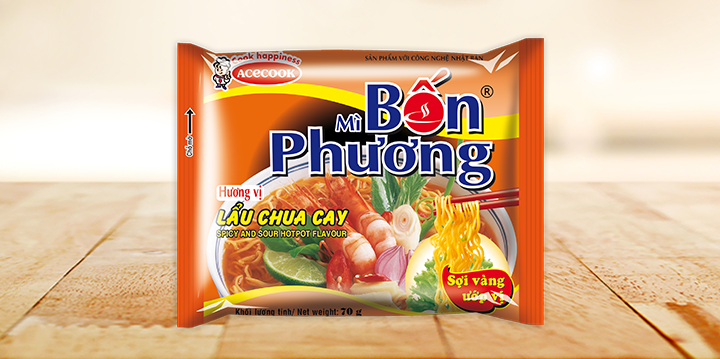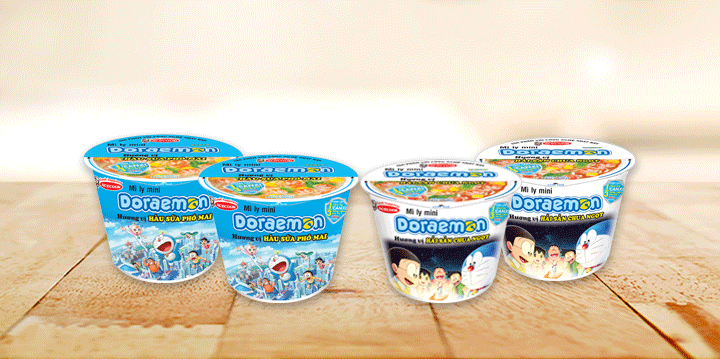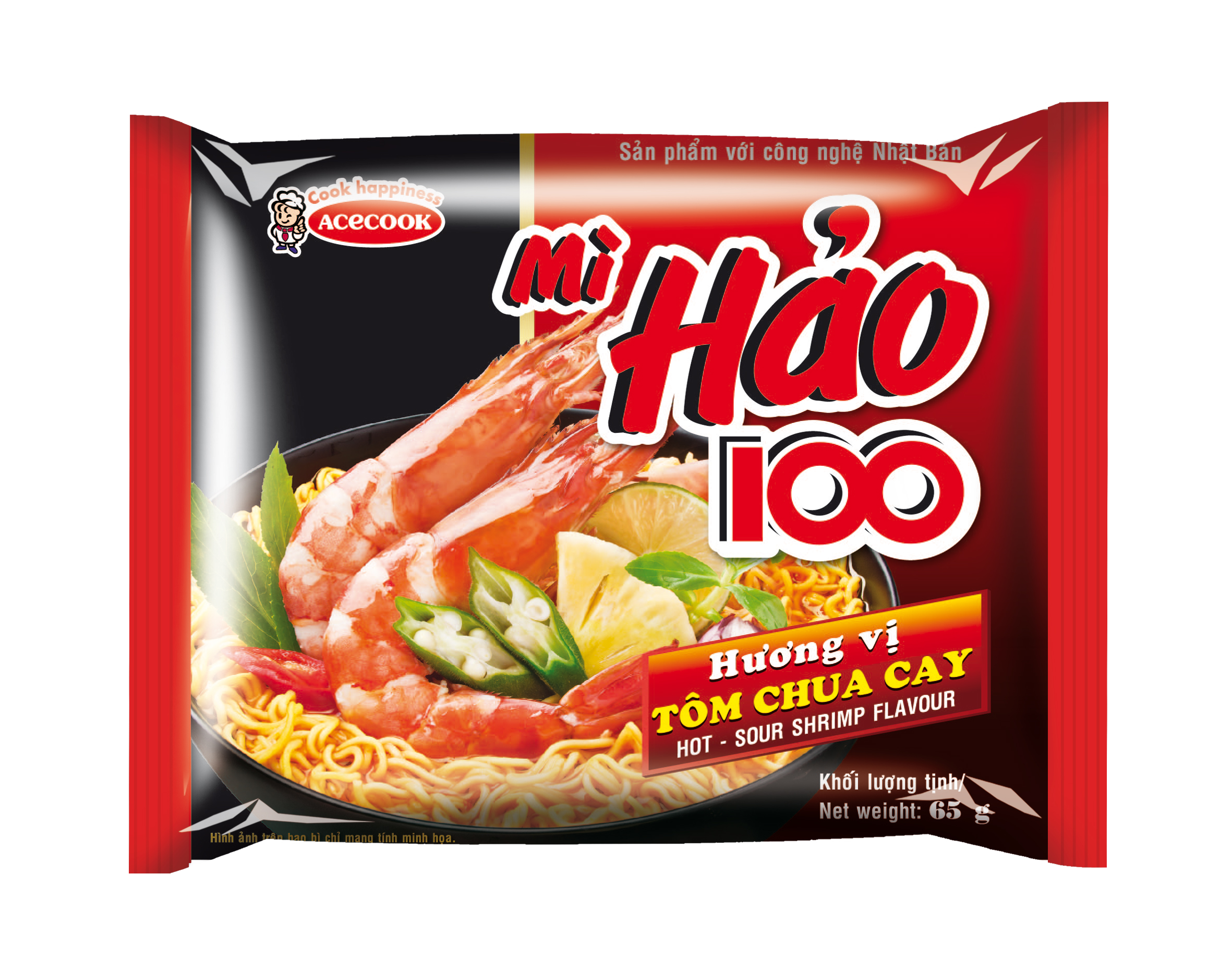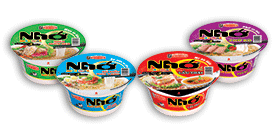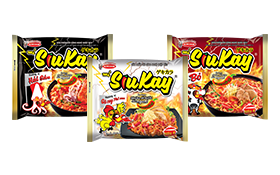In 1992, when he first set foot on Vietnam, Mr. Kajiwara Junichi – General Director of Acecook Vietnam JSC felt a great love for this country and “pioneered” to work and then… live in Vietnam. He said: “Vietnam has given me many things: happiness, career, children, grandchildren, and the trust of many consumers”.
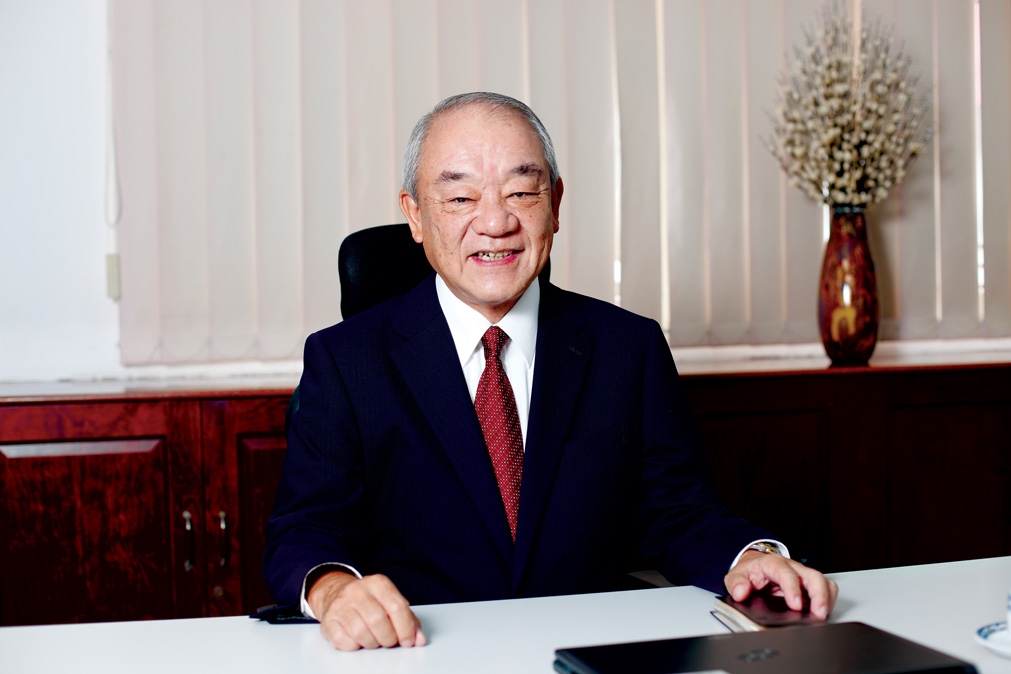
Among all these “earnings” after many years of attachment to Vietnam, Mr. Kajiwara thought that “the biggest happiness is that all my family love this country, love the life in here and we have chosen Vietnam to be our second home. Especially, I have a Vietnamese daughter-in-law and two very lovely grandchildren”.
* As you said, when first arrived in Vietnam, there weren’t too much comfort and the business had a lot of barriers, why did you pioneer to take the mission to work in Vietnam?
– In 1992, in Vietnam, even transportation was very difficult. There was no direct flight between the two countries so I had to transit in Hong Kong. It took a whole day to fly from Tokyo to HCM City. When stepping down from the airplane, my first feeling was as if I went from this world to a totally different world. HCM City was a bustling and crowded city at that time.
Main means of transportation were cyclos, bicycles, lining up on small, narrow streets, lack of traffic lights. Supermarkets and shopping malls were non-existent, goods were not varied and diversified. A life too bustling, seemingly not in order and still poor, yet brought a really strange and new feeling for first visitors from far away countries.
Especially, the people I met on the street were always friendly and everyone looked optimistic. It seemed like they all had a faith for a renewed and bright future. At that time, I thought of post-war Japan, also in difficulty and shortages like Vietnam at that moment, and I hoped sooner or later, Vietnam would change and quickly grow up like Japan.
Also in those years, the food market of Vietnam was very simple, especially the instant noodle market. Therefore, I would like to do something good for this country that I was so in love with. I thought, if I could bring the Japanese instant noodles to Vietnam, the people here could benefit from such quality products and have a lot more choices.
It was a simple thought but from there to making the investment decision and getting the results as of today, I needed to take careful consideration. After many years and uncountable difficulties, Acecook Vietnam has given me numerous experiences, challenges and also successes in my career life. Now, I feel so proud of what I have done and I feel happy that my wish has become true.
After nearly 25 years of doing business in Vietnam, Acecook has earned many merits which are the pride of the whole group, but still they cannot compare with the happiness when I go into the market and I hear people say “Acecook noodles are delicious”. If time could spring back to the past, I would still think and do the same thing, because that was a correct decision.
* What lessons have you learned after 25 years of doing business in Vietnam?
– From the dream to realization, it is a whole journey to find the direction and to make strategic planning. The biggest challenge that we’ve had during the starting phase was the flavor and selling price of the Acecook noodle pack. These two factors made Acecook struggle through many obstacles and this is also the lesson for businesses when they want to penetrate a new market: the combination of the strengths of the company and the strengths of local staffs.
When the business started in Vietnam, we determined the deciding factor in the success of a food product was flavor. To be accepted by the market, the product must have suitable flavors for local people’s appetite. Hence, Acecook didn’t impose the Japanese formula and flavors to produce Vietnamese instant noodles. This task was assigned to Vietnamese experts and we still kept Japanese production techniques.
It was this combination that has created Japan-quality products carrying Vietnamese taste. Since Acecook applied the Japanese technology and ingredients, the selling price was also high. While average price of the noodle pack in Vietnam was only 600 – 700 VND/pack, Acecook pack sold at 1,800 – 2,000 VND, thus the output was slow and high amount sales was not possible.
Therefore, it was a difficult problem to balance the price with the market. The solution I suggested was how to reduce costs without reducing quality. I went to meet ingredient suppliers in Japan, asked for their free consultation and technical instructions for Vietnamese suppliers, and at the same time we also supported a part in upgrading some of their equipment, machinery, factory system following Acecook standards.
After 5 years of implementation and exchange, in 2000, we finally had our own competent local ingredient suppliers, met the demand and started to balance the price with the market.
When Acecook was able to balance the price and introduced the spicy and sour shrimp Hao Hao Noodle, the television of Vietnam had become popular so we pushed hard on advertising, got many viewers, products sold very well, and we had to open a new factory.
Acecook has also contributed to the healthy competition, influencing other companies in this field to make changes and do better together. The fact is that many companies have “followed” Acecook in their product R&D and quality improvement. This has set a new face for the instant noodle market in Vietnam, raised the total instant noodle demand from 1.2 billion packs/year as of before to 4.8 – 5 billion packs/year as of now.
* The market for instant noodle has become highly competitive, while demand has been decreasing. What do you comment on this situation?
– There has also been unfair competition from many companies. In 2006, Hao Hao Noodle was cloned. Besides, there came a way of competition to speak badly of each other’s products. For example, Company A, when introducing the new product, said in their advertisement that their product used good oil to fry or didn’t use coloring so the noodle fibers are white. But in fact, noodles have dark colors due to different marinating secret so that they have better taste and look.
The pressure from the market and fair competition would make this sector develop better and businesses grow bigger. The way of competition by cloning good products, by tricking the consumers or bewildering them would be catastrophic.
The reason is, when consumers develop psychological anxiety due to incorrect or even harassing information, it is best for them to choose not to continue using, leading to reduced buying power and reduced total market demand. The market of instant noodles has continuously reduced during the past two years. In 2013, Vietnam consumed 5.2 billion noodle packs. It then dropped to 5 billion packs in 2014 and 4.8 billion packs in 2015.
Hence, our most important task right now is to provide correct information to the Ministry of Health, nutrition constitutions, and the media to help consumers understand correctly about instant noodles and stop their worries.
The food no longer feels delicious if you have to eat without believing. When consumers no longer feel that one kind of food is tasty, however passionate the manufacturers are, they would lose their inspiration to create and their happiness.
* For Vietnamese businesses to have a fair “playground”, according to you, how would the Vietnam Law of Competition need to change?
– Vietnam has enacted many sets of economic law with many progressive and timely changes. However, Vietnam still has many specific standards that don’t follow international norms. Thus, to assure businesses to invest, do business and create a fair business environment, Vietnam needs to apply global standards into operation of the management system.
For example, in the Law of Advertising and Competition, Japan has banned all forms of advertising that are misleading to consumers, yet there are still such misleading advertisements in Vietnam.
* According to you, after technology and product, how many percent does sales strategy contribute to a product’s success?
– The biggest challenge for a product is the output and return customers. Therefore, besides general harmonic strategies, sales strategy determines 50% success of a product. When you can make one step ahead of your competitors in the sales strategy, it means that they are way far behind you.
At the time of year 1990, when Vietnam still had the thinking of sales allocation that buyers need goods more than sellers, at most of the companies, sales departments only sat there to allocate products to their agencies and shops, not chasing sales revenue as of now, we already focused on training our sales staff, building the sales network, distributors. Our sales staff went down to each shop and agency to take care and support the sales, exchanged information on the spirit that manufacturers provide products, shops and agencies provide their needs, their customers’ needs and market information.
Today, that method has become normal but it was neglected by many businesses in the early 1990s. That also was part of our success.
* The Kaizen philosophy has been widely applied and gained success among businesses during the last 50 years, greatly contributing to the growth of each business as well as the economy of Japan. How is this spirit applied at Acecook, Mister?
– In the book Kaizen: The key to success of Japanese people, Kaizen is defined as improvement. The Kaizen philosophy focuses on the improvement and administration of product quality with the final aim to serve the customers, to increase product benefits to maximize customer satisfaction and the main beneficiary is the customers, so any activities not improving product values and customer satisfaction are discarded.
At Acecook, Kaizen philosophy is the cohesion among the staffs to make researches, product improvement and development altogether, attracting people by restless enthusiasm to make a difference and complete everything. That philosophy has helped everyone to be conscious of their self-management: if someone fail, they need to find out their disadvantage and improve it.
In Japan, teamwork spirit is so high that the Kaizen philosophy is not hard to employ, but in Vietnam many people are still used to working individually so the general teamwork spirit has not been instilled into each person. While improving, we conceive that not everything we have is good. Therefore, we are willing to learn new things, good things from other companies and make a difference and improvement in our own way. Even when succeeding, I also always think about improvement, so that today must be different from yesterday.
* You often feel proud that the time of working in Vietnam has brought you a successful career, does that mean your responsibility has been fulfilled?
– I’m more than 60 years old this year, with more than 40 years of work and Acecook is the place that saw my success. My career is at Acecook. So, if the consumers still misunderstand Acecook noodles, still doubt their safety, I feel my responsibility has not been fulfilled.
My mission in this year and upcoming years is to continue to transfer correct information to consumers and raise the value of instant noodle market as well as improve the quality of rice, vermicelli products and promote exporting, continue to implement community activities.
* Thank you for this open sharing!
By Lu Y Nhi (Saigon Businessmen)






